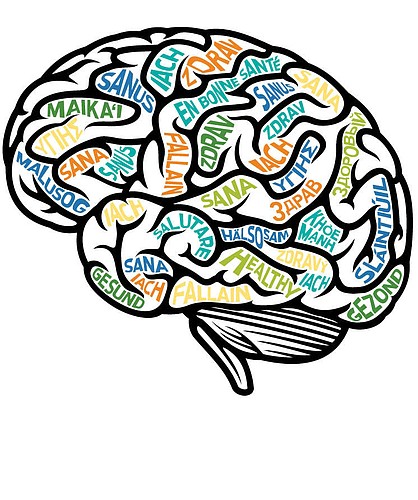- January 15, 2025
-
-
Loading

Loading

When Chai Lawler was 20, she was working at a military facility in Taiwan. It was there that she met her first husband, James Murvine, who was serving in the Army.
The two fell in love and decided to move to Chicago. The only problem?
Lawler spoke minimal English.
Growing up in Taiwan, Lawler spoke Mandarin Chinese and picked up a few English phrases throughout her life. Murvine, however, did not know any Mandarin Chinese.
“I couldn’t even fight with him because I didn’t speak English,” Lawler said.
However, upon her arrival in the U.S., Lawler took courses in English as a second language and spent countless hours watching TV to improve. After two years in the U.S., Lawler said she learned English well enough to argue.
But that’s not the only benefit she and other multilinguists get from learning more languages.
Nicci Kobritz, a geriatric specialist and the founder of Sarasota’s Center for Brain Health, said bilingual speakers can see a variety of benefits, such as increased attention spans, concentration, reasoning and problem-solving.
One student at Intraespa Intercultural Learning Center, Brad Kaiser, said that since he began learning Spanish five years ago, he has seen his overall brain function improve.
“I’m a firm believer that when you challenge your brain, it helps your creativity,” Kaiser said. “It helps connect patterns and thoughts and things that maybe would have escaped you before.”
These improvements occur because learning a second language is a brain-training program that is neuroplasticity-based, Kobritz
said. This means it focuses on strengthening the brain’s connections among neurons, which improves a person’s information recall and overall brain communication.
Simona Bai, an Italian teacher with Adult & Community Enrichment at Suncoast Technical College, said she sees these improvements firsthand with her students, who she said are typically between 50 and 60 years old.
“As people get older, the more difficult it is to memorize things,” Bai said. “But learning another language is very good for the memory. My students have all said their memory has improved after taking the class.”
Another skill Bai said people can see improvement in is multitasking. She said this is because when learning another language, you rely more heavily on your first language. In this way, learners are flipping back and forth from one language to another, which helps stimulate that part of the brain.
Mike McKillip, 54, another Intraespa student, said this stimulation has helped his memory improve since he began learning Spanish
in March.
McKillip was injured while serving in the Marines during the Gulf War and ended up living on a heart pump for four years. He had a heart transplant in October 2017 and said the medication afterward caused his mind to become foggy and his memory to go bad. However, after beginning to learn Spanish, he said his memory is slowly coming back.
“I could remember numbers I wasn’t able to remember; I remembered names of people I’d worked with years ago,” McKillip said. “In April, I was better than March. In May, I was better than April. In June, I was better than May, and I think I’m almost getting back to normal.”
Bai, who also teaches children, said that typically, kids pick up the language a little faster than adults. However, her adult students have more time to study.
National Institutes of Health reports that one in five children nationwide speak a language other than English at home. Bilingual children, NIH research said, are better at multitasking and show a better memory than monolingual children.
Although Kobritz said that the younger a person starts a neuroplasticity-based program, the better, older learners will still see all of the benefits.
“Your body can change at any age, so there’s no cutoff in terms of age or improvement,” she said.
In fact, various studies conducted at Penn State University from 2013 to 2016 show older learners are often better at prioritizing information and that the enhanced mental skills can protect them from problems associated with aging, such as Alzheimer’s disease and dementia.
Furthermore, a 2015 study by the National Center for Biotechnology Information found that differences between monolingual and bilingual brains positively increase as a person ages. For example, bilinguists present symptoms of Alzheimer’s disease or dementia an average of four to five years later than monolinguists, and older bilinguists are more efficient at resolving conflict than younger bilinguists.
“We used to believe that when we were born, whatever brain cells
we got, that’s what we had the rest of our lives,” Kobritz said. “We now know that that’s not true. We can affect change in the brain.”
Although these changes can be largely helped by a brain-training program, Kobritz said they must be combined with other variables to be successful. She cited four to five days of exercise, eating a plant-based diet, sleeping seven to eight hours a night and managing stress levels as various pillars to a full brain-healthy lifestyle.